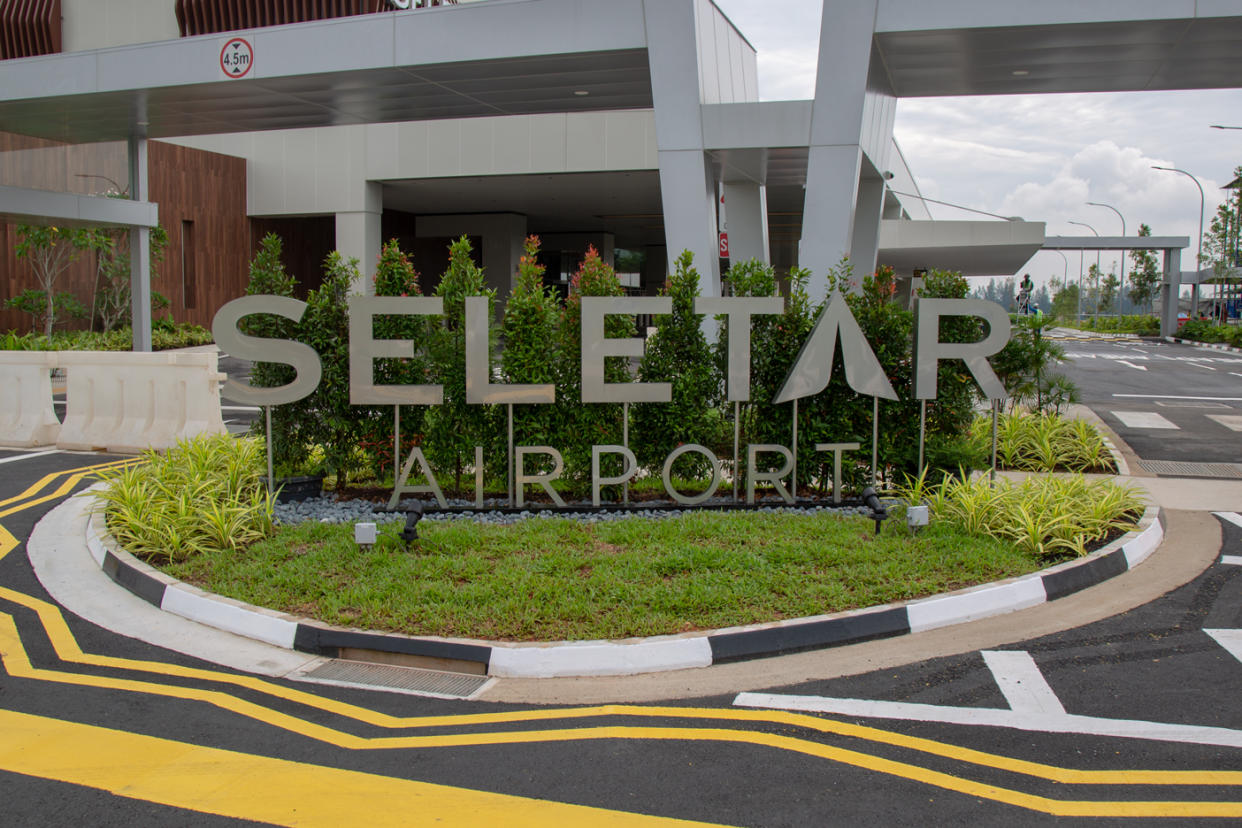Singapore, Malaysia to develop GPS-based procedures at Seletar Airport, work towards 'supplementary agreement' for RTS delay: reports

The civil aviation authorities of Singapore and Malaysia will work together to develop Global Positioning System-based (GPS) instrument approach procedures at Seletar Airport, in place of the Instrument Landing System (ILS) procedures that Singapore had recently withdrawn.
Furthermore, the two countries are also working towards a “supplementary agreement” to suspend the Johor Baru-Singapore Rapid Transit System (RTS) project.
These two developments were announced by both countries’ Transport Ministers, Singapore’s Khaw Boon Wan and Malaysia’s Anthony Loke, in a media conference at Kuala Lumpur International Airport on Monday (8 April), according to The Straits Times.
Procedures to improve safety for flights
Khaw said that the GPS-based procedures are expected to be implemented soon, and will improve safety for flights at Seletar Airport.
This development comes after Singapore agreed last Saturday to withdraw the ILS procedures for Seletar Airport, ending a dispute with Malaysian authorities over the airspace over the nearby Pasir Gudang area in Johor that began in November last year. Malaysia will also indefinitely suspend its Restricted Area over Pasir Gudang.
According to CNA, Khaw said, “We will introduce GPS-based instrument approaches from both the north over Pasir Gudang and south over Singapore island. This is because airplanes take off and land into the wind.
“With north-east and south-west wind directions at different times of the year, both approaches are needed.”
Firefly to resume operations at Seletar on 21 April
Loke also revealed that Firefly, the Malaysia’s budget carrier which suspended its flights to Seletar Airport due to the dispute, will resume operations at the airport on 21 April, CNA reported.
Loke also said that another Malaysian carrier, Malindo Air, is keen to operate out of Seletar, and has approached Singapore’s airport authorities for approval.
“I think this is so good for our cooperation and the way forward,” said the minister during Monday’s media conference.
As for Malaysia’s wish to take over control of airspace over southern Johor, a high-level committee has been set up to review the existing airspace arrangement, in which Singapore air traffic controllers manage that airspace. According to The Straits Times, the committee will be co-chaired by Singapore’s permanent secretary for transport and Malaysia’s secretary-general of transport.
Khaw said at the media conference, “Minister Loke stressed that the review was important to Malaysia. I assured him that Singapore would approach the review with an open mind, bearing in mind the many stakeholders involved and the critical need to ensure safety and efficiency in a very busy airspace.
“With goodwill and compromise, I am sure that a win-win solution which does not undermine each other’s core interests can be found.”
Malaysia to compensate for RTS project delay
Regarding the supplementary agreement for the RTS project, Loke said that it was needed following Malaysia’s decision to suspend the project for six months to review the costs involved.
When asked if Malaysia would be made to compensate for initiating the delay, he replied, “It needs to be worked out by the Attorney-General’s Chambers. Yes, there are some costs involved, but I cannot tell you what the exact cost is right now.”
Loke added that ticket prices was one of the important aspects being looked at, and quashed rumours of the project being cancelled outright.
He told the Malay Mail, “Under the current agreement, the proposed fare is a bit on the high side. Both countries have agreed to lower the ticket price.”
The Johor Baru-Singapore RTS Link, which will connect Bukit Chagar in the Malaysian state to Woodlands in Singapore, was initially projected to be completed by 2024, but is now behind schedule, with Malaysia repeatedly delaying confirmation of its joint venture partner.
According to CNA, Khaw said that the project is “an especially important priority area”, given the heavy traffic congestion at the Causeway.
He added, “The RTS Link, when completed, will make a significant difference to commuters’ experience, being able to transport up to 10,000 passengers per direction per hour.”
Related stories:
Loke: Malaysia, Singapore sorting out supplementary agreement after RTS suspension
Thanks Singapore, but high time Malaysia manages own airspace, says Loke



